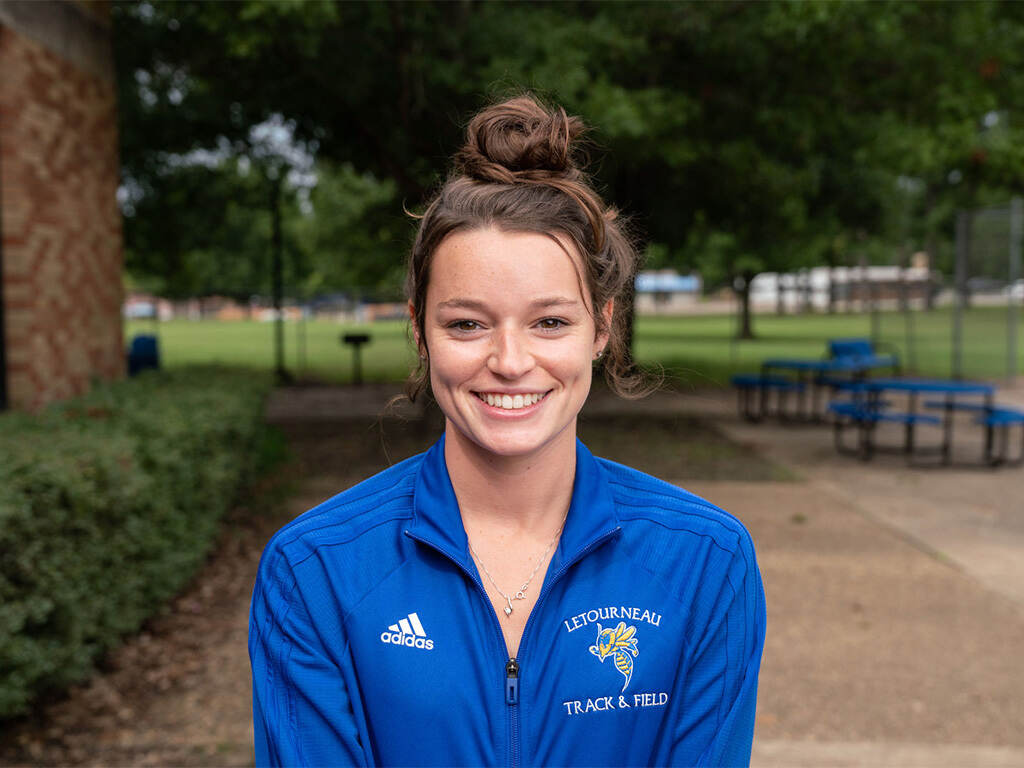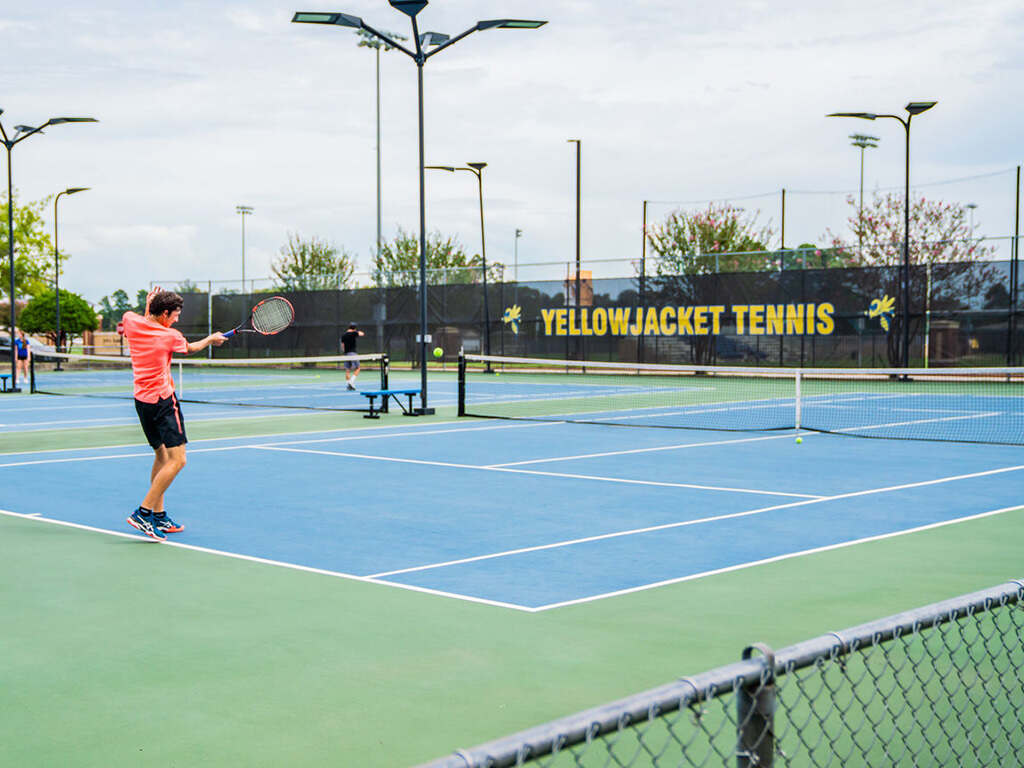by Grant Bridgman
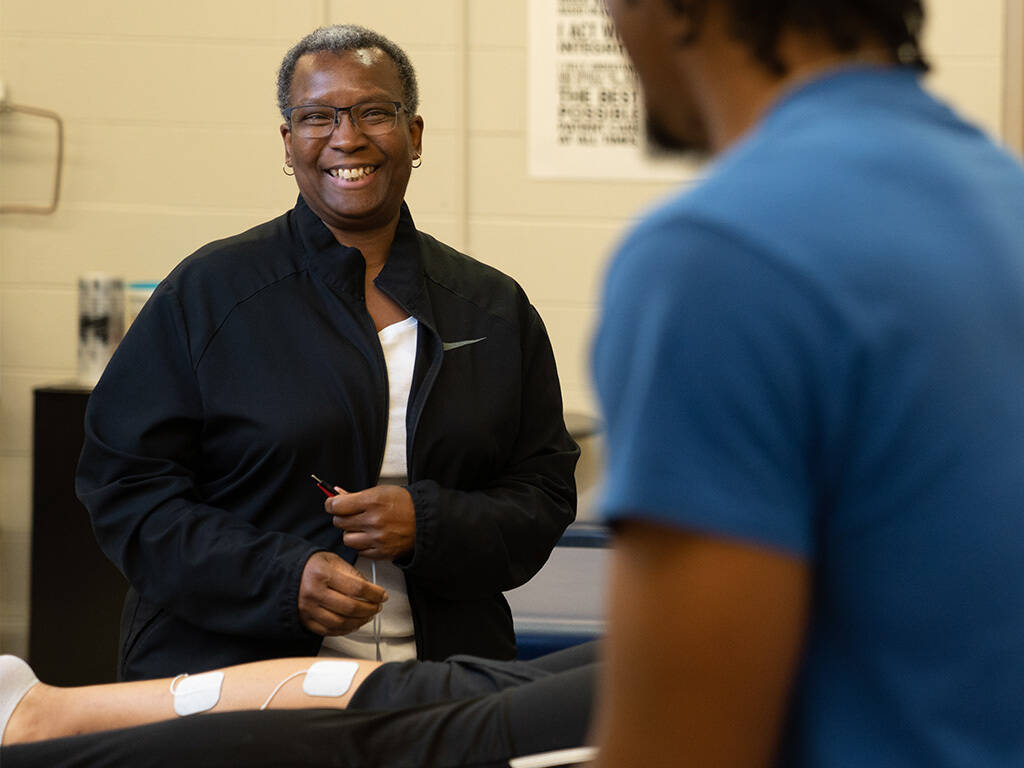
What do all athletes desire? Acclaim? Longevity? Success? Certainly there are even more words to add to that list. There are countless barriers to achieving great success, and as sports legend Michael Jordan once said; “Obstacles don’t have to stop you. If you run into a wall, don’t turn around and give up. Figure out how to climb it, go through it, or work around it.”
The world of athletic competition inspires persistent pursuit of growth and improvement, consistency of character, and a winsome work ethic. In NCAA Division III athletics, these traits are just as important as the individuals who serve as the guiding force behind the building up of future champions. At LeTourneau University, the athletic staff are the front lines of impact to our student athlete experience. From encouragement in the midst of shedding blood, sweat, and tears, to the experience of focus, nerves, and cheers, our staff are here because they love our student athletes. This is true of all our coaching staff, and definitely true of our head athletic trainer, Portia Phillips—or as she is known around campus, Ms. P.
Anyone who has been around LETU Athletics in any way over the past 19 years has seen, known, and likely been impacted by Ms. P. Coming to LETU in 2003, after having experience working in Division I athletics, Portia was eager to get back to Texas, and specifically was looking at smaller Christian universities. The appeal of a school where she could openly lean into her faith and discuss with students how our bodies are “incredible instruments that God created” was made even more attractive when she thought about how she wanted to move into a position at a school where she could use her athletic training to “actually take the time to work intentionally with an athlete when an injury occurs and get them back on the court, on the field, etc.”
She knew after her first visit to campus that LETU was a natural fit. The campus felt “like family”, so when the offer came through, Ms. P jumped at the opportunity to be a part of something special, where she could contribute her skills and perspectives to better the lives of student athletes.
While always an athlete at her core, basketball being her “first love”, Portia found that early on in her life she was always drawn to the scenarios when an athlete was injured. How did that happen? Could that have been prevented? What steps will be taken to help heal from that injury? How long will the healing process take? Pursuing these types of questions became a type of calling for Portia. Initially she pursued biology/pre-med with an interest in learning more about how the body works. She wouldn’t be there long, however, as the world of athletics continued to call her name. She changed over to kinesiology and sports studies, went straight on to becoming an athletic trainer, and “never looked back”.
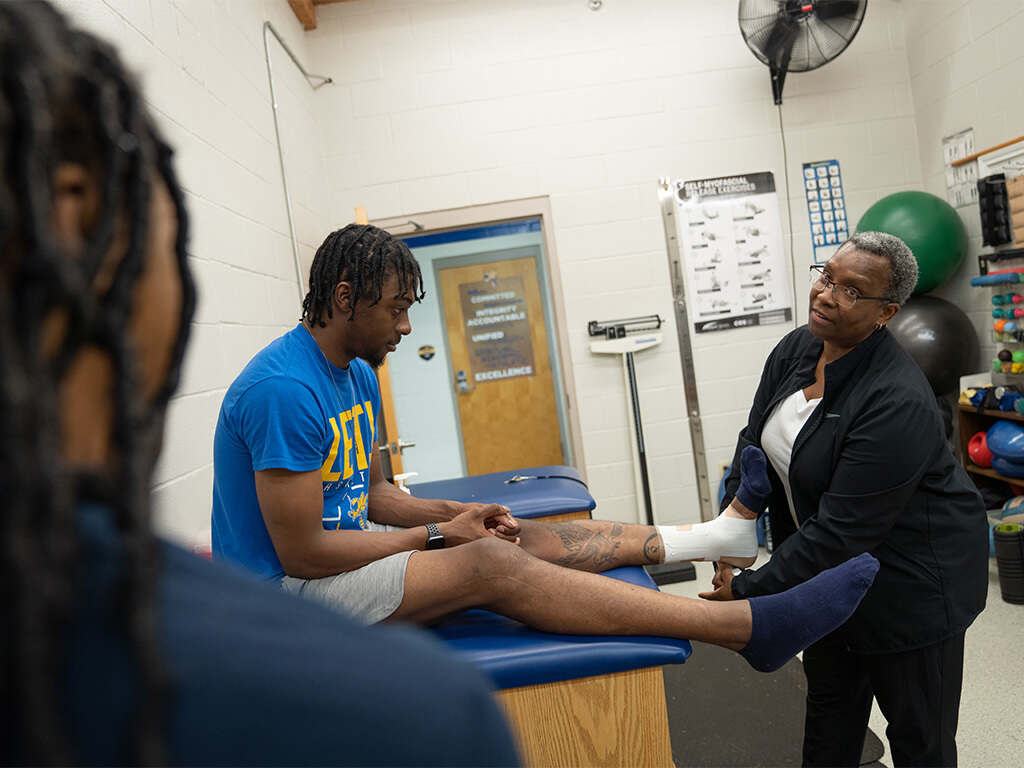
Those who know Ms. P understand that the one thing she loves more than athletics as a whole, are the individual students that she works with. Helping students improve in nutrition, proper training, and various cross-training, is only a piece of what makes this work special to her.
As a trainer she gets to know **the student’s personalities, who they are, to hear their stories, what ‘makes them tick’: “I enjoy that part so much—getting to know the people.”
She learns about their families and their backgrounds. Students from all different types of life—from hard home lives, fighting just to get out to survive, to those that come from wealthy, great educational backgrounds—and from different countries. Nothing emphasizes Portia’s heart for students more than the look of pride and fulfillment on her face when she spoke about a young man who is finishing up his time at LETU this spring, track and cross country athlete and ASC Champion, Lorien Nightingale.
“When he first came here, I think the training part was a transition for him. It was hard. And he struggled those first training sessions and getting acclimated. Well, here we are down the road. He's ready to graduate and leave here. And Lorien is a champion. He has conquered the American Southwest Conference. He's an individual champion, overcoming challenges and all those other things you see when these kids come through the door; there's excitement, but there's also a little fright. And they don't know how they're going to get through it. Then when they leave, you can see the maturity and the growth and how they’ve changed. And Lorien comes to mind just because he's currently here. And when I see him walking down the hall, I call him ‘champ’ because he came a long way to be the champion, and that's what it's about.”
As someone who understands, perhaps more than most, the extra strain of being a student athlete while also being committed to rigorous academics, Ms. P makes extra certain that students understand the position they are in as an athlete—namely, a position where you can utilize the tools you have used as an athlete to be successful in everything you pursue after college. Portia’s hope is that students always remember the lessons learned about working with people - with many different personalities and strengths—about how to be a leader, about how to handle a lot thrown your way all at once, and how to grow and thrive through all of it:
“As an LETU student athlete, you have to have handle the academics of LeTourneau, your coaches want your time and your attention, and you want to have relationships with other students. How do you balance those all out? It starts with a relationship with Christ. How does athletics play into that? It teaches you to step out and step up even if you are afraid. It teaching you how to cooperate with people. If you can balance all that out, you will walk away from here a leader who can incorporate and understand multiple things that are going on around them, thinking with boldness and agility.”
Speaking of student’s mindset, Ms. P has also noticed how athletics, and the principles and practices therein, can help to improve a student’s overall mental health. Athletes face the same struggles as everyone else, yet at times, face increased pressure and expectations. This can create the perfect environment for an increased sense of being overwhelmed. The American College of Sports Medicine found in a recent study that approximately 30% of women and 25% of men who are student-athletes report having anxiety. Portia sees this in student athletes often, and works to help guide them alongside any additional help they need.
“I think mental health struggles affects our student athletes just like any other. And they have those challenges and obstacles. And especially when you think about the rigor, and academics, then the demand from your sport, and then who knows what's going on at home or in their own personal relationship. It can be a lot. If you take the time to step back, exhale, figure out what the situation is, then get help for that situation. This will help you move forward, to get back and perform on the field, on the court—in whatever it is that you're doing.”
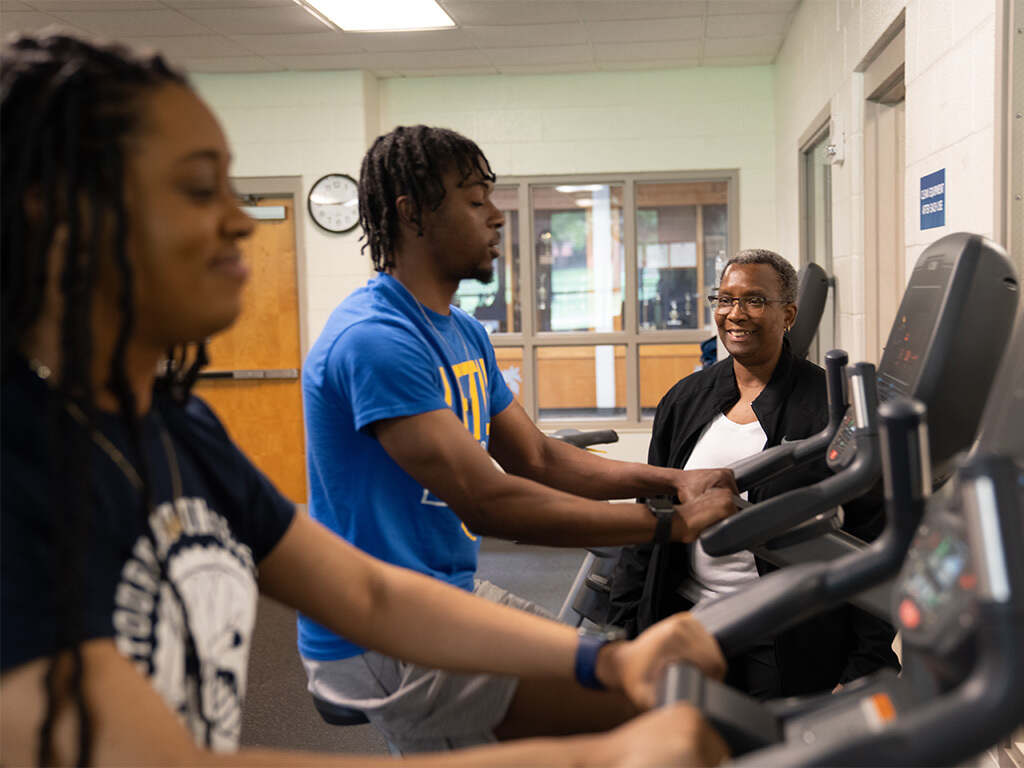 Viewing her job as a service to the student athletes—to get them back on the court, on the field, as safely and quickly as possible, Ms. P truly enjoys the process of guiding students to get one step closer to winning again. While she never wants a student to be injured, it’s clear that Portia appreciates the door it opens for her and her staff to get to know the students a bit better.
Viewing her job as a service to the student athletes—to get them back on the court, on the field, as safely and quickly as possible, Ms. P truly enjoys the process of guiding students to get one step closer to winning again. While she never wants a student to be injured, it’s clear that Portia appreciates the door it opens for her and her staff to get to know the students a bit better.
All athletes desire to win, no less the student athlete. Perhaps the attraction of acclaim, or the need for longevity are primarily markers of perceived athletic success. One could argue that the Division III athlete has one of the toughest journeys of pursuing success. For DI and DII athletes, the focus is on pursuing professional athletic careers. So even the four years in college is less about the vocational preparation/education, and more focused on athletic preparation. For the DIII athlete, since their most likely post-college future is not a career as a professional athlete, they feel the weight of importance of focusing on their academics, while also feeling the weight of desire to contribute to a winning collegiate athletic program. This splitting of focus requires even more determination and resolve. How does one ‘climb’, ‘go through’, or ‘work around’ the obstacles, as stated by ‘Air’ Jordan? Ms. P says:
“Be patient. Your time will come. All of us need patience. You have to go through whatever the challenges your coaches are putting up for you—that being in school is putting up for you—to be successful. You have to work your way through the process. When you're frustrated, you're agitated, be patient as you push through. It’s the only way you're going to get through any obstacle; nothing is given to us—we have to work for it. So be patient, because everything will be okay. Everything’s going to happen in the manner in which it is supposed to. Be patient.”
The pursuit of success is certainly not owned by the athletic world. The example set by Portia Phillips is one that clearly applies to every walk of life. Her commitment to students and to her calling showcases a mindset of grit and persistence, joined with a heart bent toward healing and growing of character, that can truly transform every vocation on earth.
